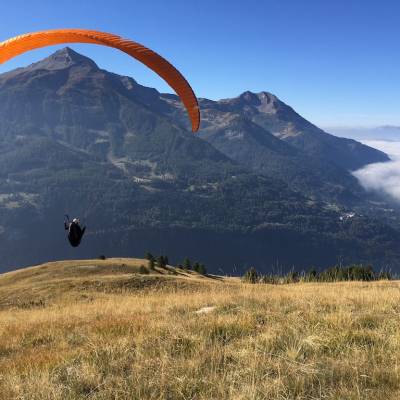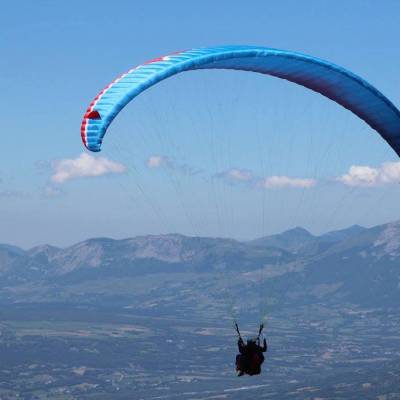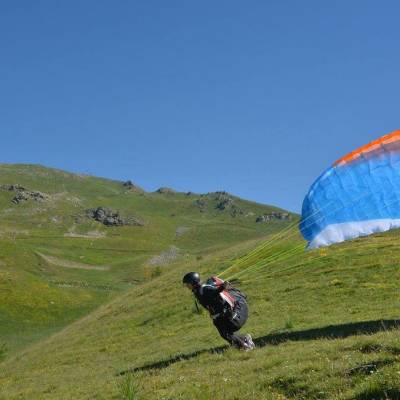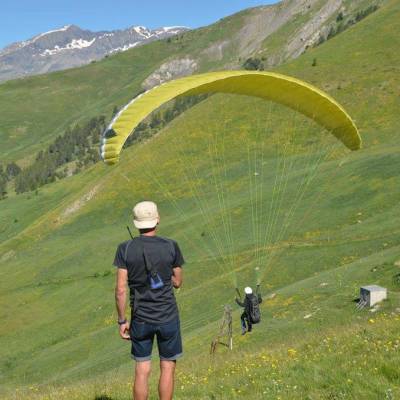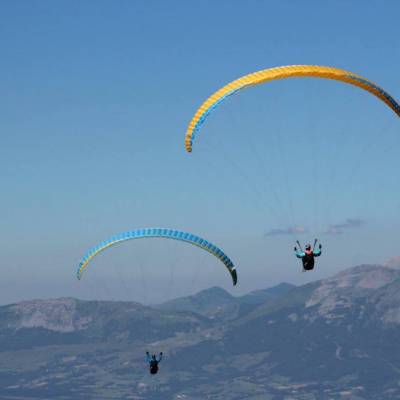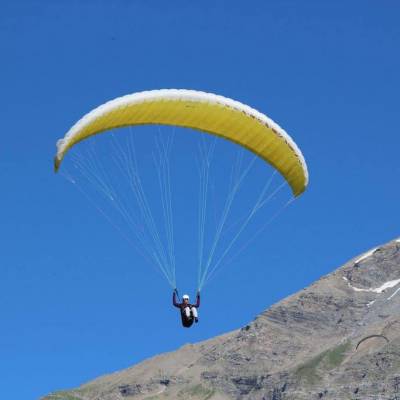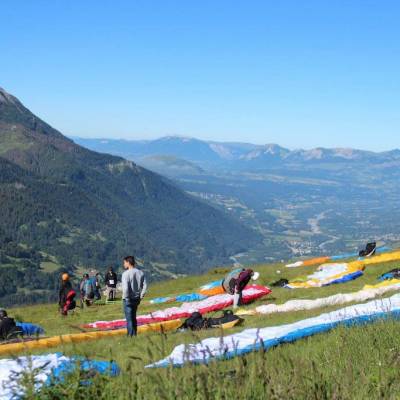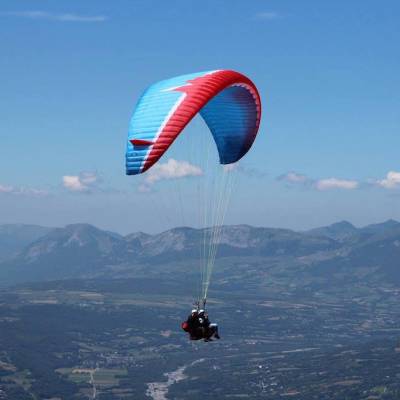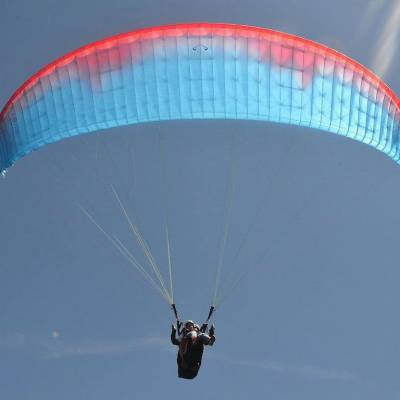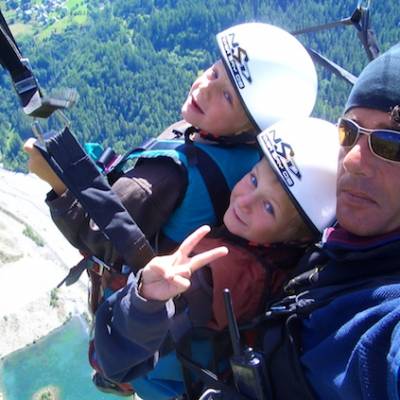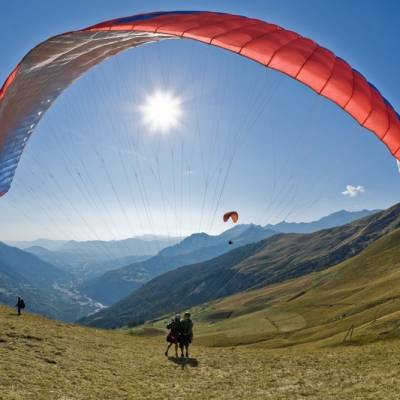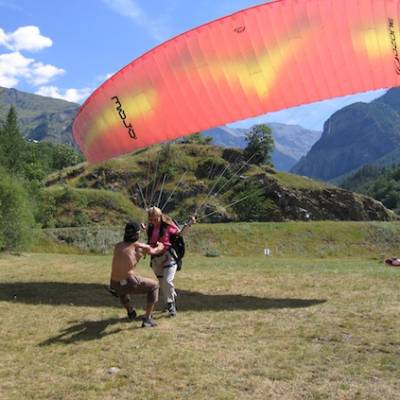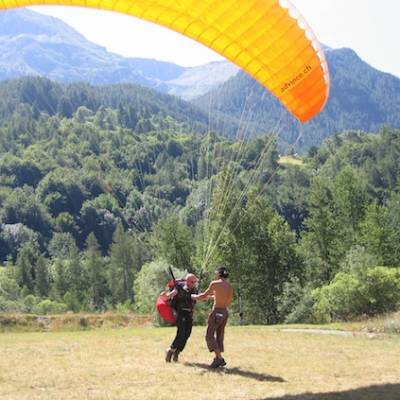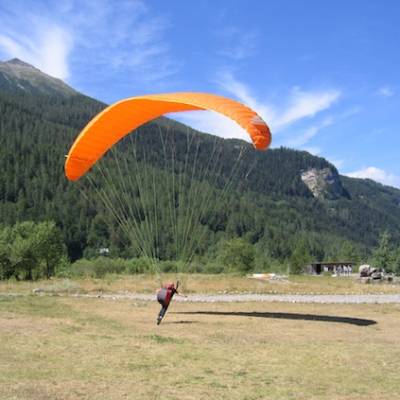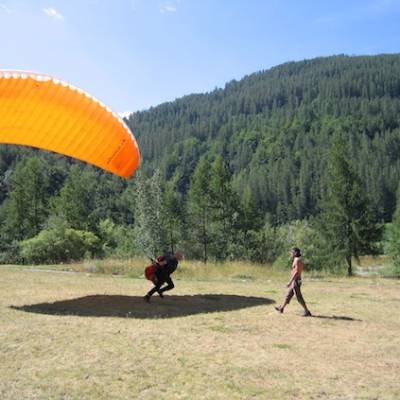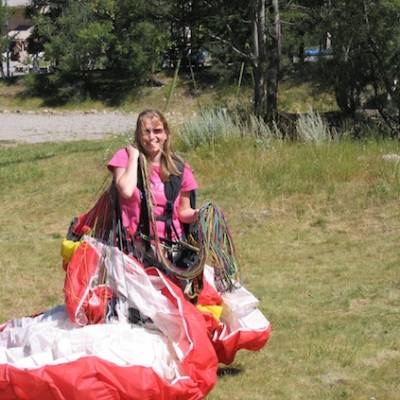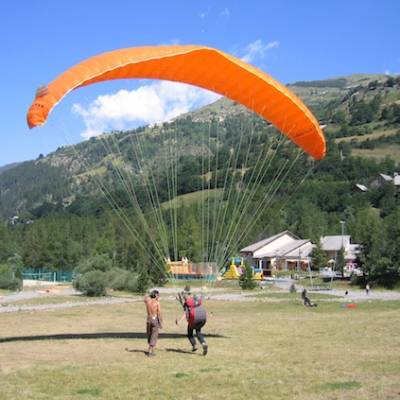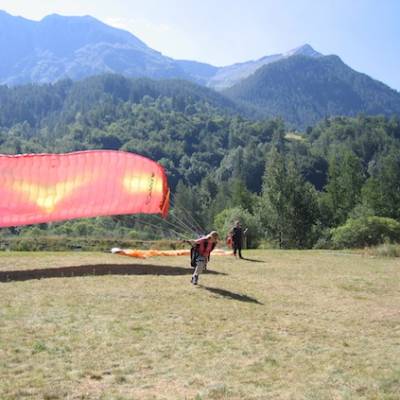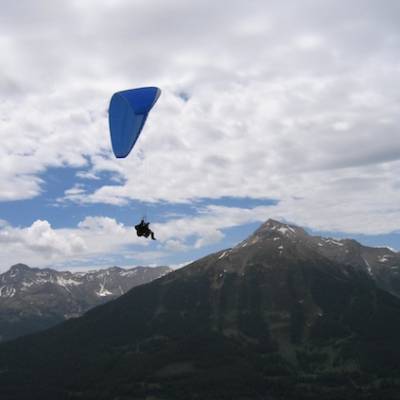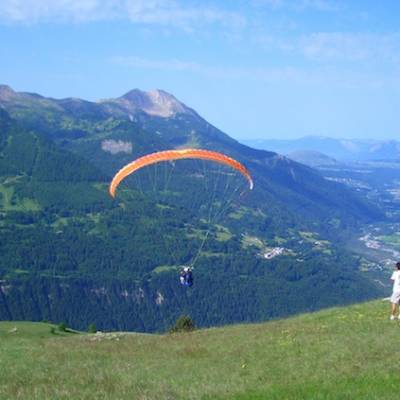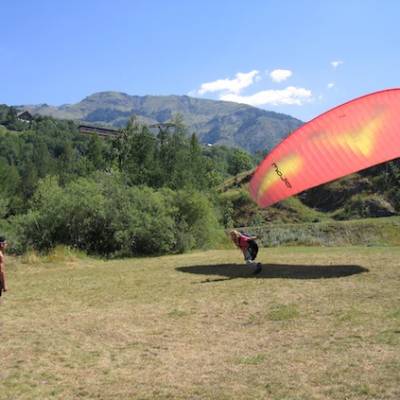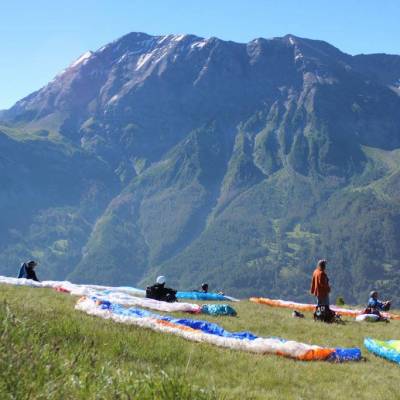Have you ever imagined flying free in the air like a bird – who hasn’t! Paragliding is the closest you can get to this amazing, fantasized and very unique feeling: flying!
What is Paragliding?
Paragliding is not the same as parachuting where you jump out of a plane and then release your parachute.
For paragliding, you start off at a high point - the top of a mountain for example, and lay out your parachute behind you on the ground. Once you are sure it is all ready and safe to go, you literally run off the mountain pulling the parachute behind you. As you move forwards the air fills the parachute which normally coincides with you running out of land and whoohoo - you are suddenly flying in the air!
The only energy you need to take off, fly and land, is the air around you, and the physical phenomenons you cannot see: winds, thermal currents, and gravity. The better you understand these unseen dynamics, the more fun you will have paragliding! You control the paraglider using the handles and your body position to make the most of the thermals and wind currents. Experienced paragliders can fly for 100ds of km without having to touch the ground!
How to Experience Paragliding?
If you just want to try out paragliding and have an experience, then a tandem paragliding flight is the best option. We offer tandem paragliding flights as part of our summer multi activity holidays in the Alps
On a tandem flight you will spend about 10-15 minutes in the air and the instructors will make sure that everything goes as smooth as possible from take-off to landing. It is also possible to choose other taster tandem flights, like a sensations flight where the instructor will perform tricks twisting and turning you in the air! Or you can go for a longer discovery flight lasting 4 mins or dos over the mountains.
Tandem paragliding flights are also possible in winter as part of our winter multi activity holidays in the Alps. The main difference being that you land on skis!
Learn to Paraglide:
To actually fly yourself requires a thorough knowledge and understanding of the effects of the air currents, how thermals work and of course how to technically control and manage these to your benefit with the parachute.
If you are already a convert to the idea of paragliding and want to learn how to do it safely so that you can fly solo in the air, you need to learn the many safety procedures and techniques involved!
The best way is to join a course, usually over several days with a recognised paragliding school. We offer two paragliding courses in the southern French Alps with our highly experienced qualified instructors. The southern French Alps is a great destination for learning to paraglide thanks to its reliable weather conditions and predictable thermals.
To find out more about the different levels and what you will learn on our courses have a look at our guide to learning paragliding booklet.
For total beginners, you can join our week long 'learn to fly' paragliding course in the Alps which will teach you the basics of the equipment and how to read the air currents and thermals with the aim of being able to fly by yourself in calm conditions with ground support towards the end of the week. You will cover white, yellow and orange levels in the guide cited above.
For intermediate paragliders you can join our intermediate paragliding course in the Alps. This is for gliders who want to become more independent in the air and improve their knowledge and understanding of the different airflows, how to master them to stay longer in the air or do tricks with your paraglider. For these courses, we will tailor the course to suit you, progressively going through the levels green and blue to become an independent pilot and then brown to fine tune your skills for longer flights, competition flying and higher level skills.
Safety
Since its creation in the 1960’s, paragliding has evolved dramatically, and as with all sports, the equipment which is typically used today is barely comparable with what the paragliding pioneers used to fly with.
Safety procedures and techniques have also evolved inline with modern equipment. Today, accidents are extremely rare if practiced in good weather conditions using the correct safety procedures and within your technical skill level.
If you want to go paragliding it is important to learn how to use your equipment and to understand the safety techniques and procedures properly by learning to fly with a regulated paragliding school. All the instructors and paragliding schools we work with are licensed with the French Paragliding Federation and are also vetted for their professionalism and friendliness to ensure a safe and enjoyable experience.

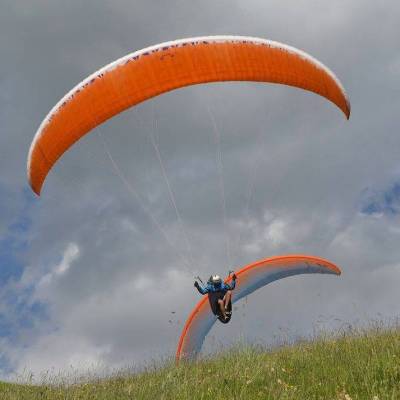
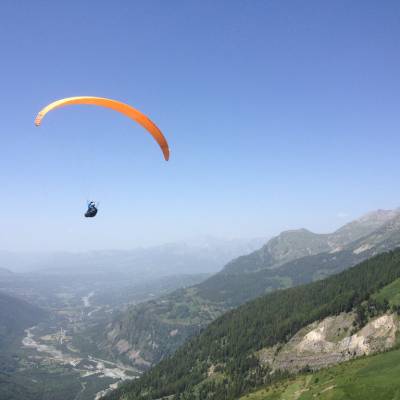
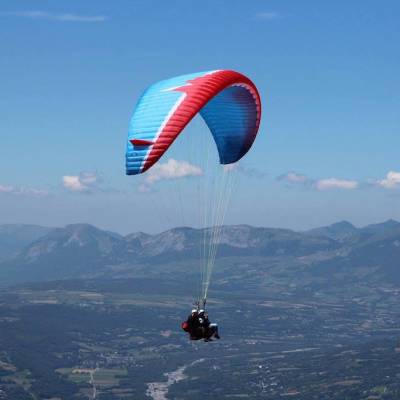
-lt.jpg)
